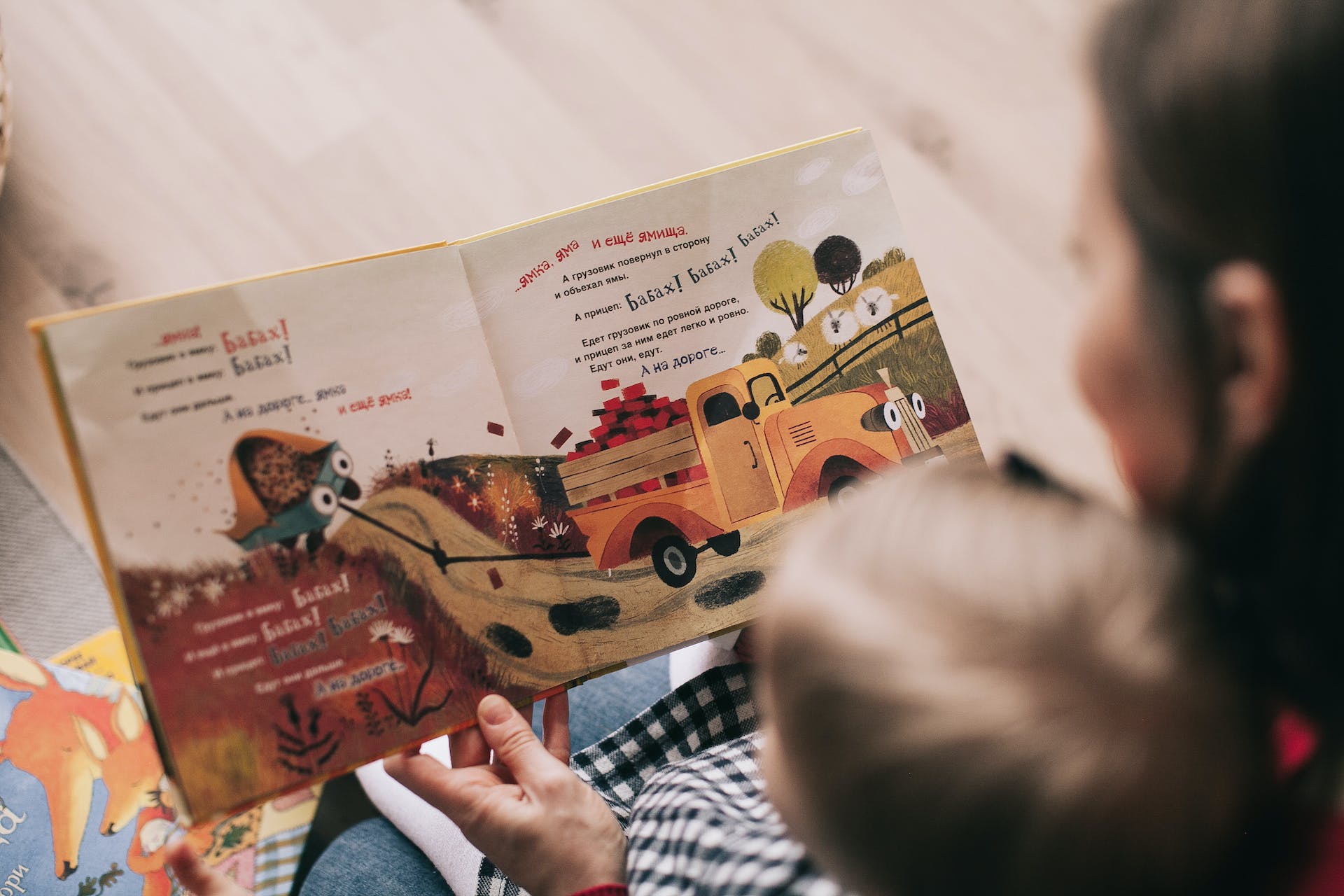Preschool reading skills can significantly benefit a child’s vocabulary, creativity, attention span, and more. However, teaching a kid how to read is challenging for many parents and caregivers.
After all, a child is easily distracted by the world around them. To remedy this, experts have devised creative solutions to make reading both effective and fun. So, here are some activities that can help you work on your child’s reading skills.
Six Activities to Develop Your Child’s Early Reading Skills
Associated Word Hunt
Associated Word Hunt can be done in your home or a classroom. You’ll need to list a bunch of words on paper, cut them out, and hide them around your chosen space or area.
What makes the game fun is that you should hide the cutout sheets of paper in places associated with the word on them. For example, “green” could be in a flowerpot or outside in your yard. And “music” could be on the side or back of a speaker or a toy xylophone.
You can even involve your pets by placing words like “friend” or “guard” on them to make the activity more enjoyable.
Narrative Scavenger Hunt
You can create a narrative around your child’s favorite words to enhance the activity. First, you’ll need to compile about five words that are connected.
For example, say your words are “seed,” “soil,” “water,” “sunlight,” and “tree.” As you’ll notice, all these are linear progressions of how a plant grows from a tiny seedling to a mighty tree.
You can then provide clues to the participants on where to find the hidden words. As a bonus, try to get the kids to think of terms to summarize the group of words. In this case, it can be “growth,” “nature,” “environment,” or “surroundings.”
These activities are valuable because they engage a child’s attention, retention, and recall. These three concepts are highly beneficial to children for remembering words as they grow up.
Filling the Gaps
Filling the Gaps is a great way not only to teach kids how to read but to spell as well. Here’s how the game works.
You take a word and remove one letter from it. For example, apple becomes “_pple,” and baker becomes “_aker.” You can put your list together using words that begin with A to Z so that you complete the entire alphabet.
You can also create a narrative using sentences with words from your list rather than provide the participants with single random words. For instance, a sentence like, “The _ngry _ear went to the _ity and to talk to the _onkey,” might make the game more interesting. Moreover, to make the activity more relatable, you can use the participants’ names.
Alphabet Ball
Alphabet Ball is another activity that can develop early reading skills for children. All you’ll need is a sharpie and a $1 beach ball.
Write down the alphabet on the beach ball and have your child toss the ball in the air. Every time they catch it, have them recite the alphabet starting from the letter their thumb or forefinger is touching. You can recite the alphabet with them if they’re still in the process of learning it as well.
Better yet, try to spot examples from your surroundings. For instance, if they are touching the letter “G,” you can say “grass” or “green.” If it’s “B,” you can point to the sky for “blue” or your dog for “bark.”
Alphabet Rocks
If you’re looking for fun summer reading activities, you can try alphabet rocks. This is especially great if you live near rivers or coastal areas where you can find flat smooth stones.
Collect at least 26 rocks to complete the alphabet, or gather more to spell out different words for your child to recite. Then, take a permanent marker or chalk and write each letter on the stones. Write the uppercase version of the letter on one side and the lowercase version on the other.
Similarly, you can instead write common words you’d like your child to remember and practice reciting these words with them.
Sensory Bins
Sensory bins link early reading skills to a child’s tactile sensations. For example, take a container, fill it with rice or peas, then place objects in it. Each bin should have things that start with the same letter.
For example, “dinosaurs,” “Donald Duck,” “Dracula,” and “dream catcher” should be found in the same container. You can let your child guess what letter of the alphabet the bin stands for by letting them examine all the objects inside.
If you’re doing this in a classroom, you can take all the objects out and have the children work together to place them in their appropriate bins. You can also get the kids to return the objects to the container once they’re done playing. That way, you’re also teaching them how to clean up after themselves.
How to Make Reading Fun: A Childhood Wonder
Preschool reading skills should be reinforced early so a child’s brain can quickly develop. And if you can combine this with learning another language, you can further accelerate the kid’s cognitive development. In fact, bilingual children typically score higher in reading, writing, and mathematical fluency than their peers who speak only a single language.
At Rayito de Sol, we offer the best preschool lessons as we employ highly-qualified Spanish-speaking staff. In addition, we ensure that our teachers only work with a handful of kids in their classrooms at a time so that they can focus on each child’s progress.
Visit our website to find the most suitable programs for your child. You can also read up on more tips for selecting the right preschool through the Rayito de Sol blog.











